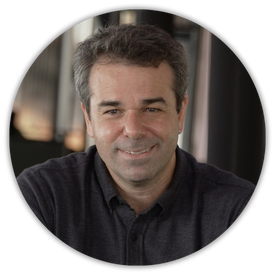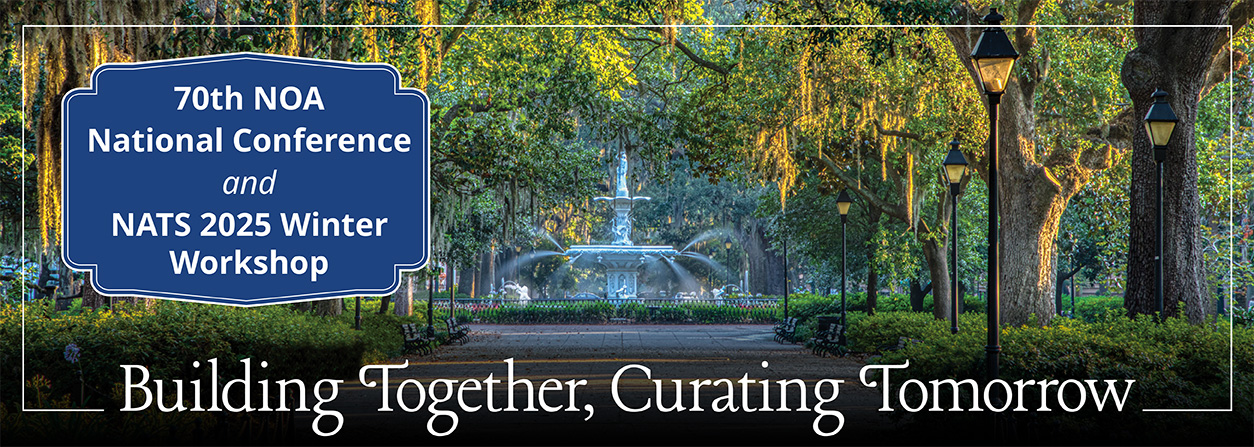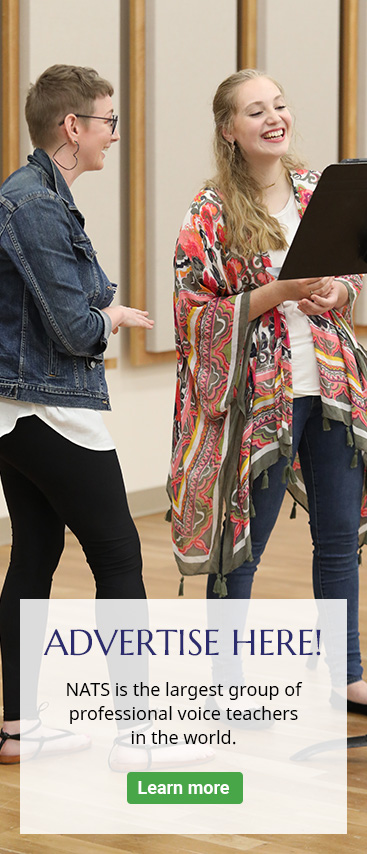What's New > Catching up with Tomer Zvulun
 |
Tomer Zvulun
|
Tomer Zvulun is the General and Artistic Director of The Atlanta Opera, where he has transformed the company into one of the top 10 opera organizations in the U.S. since taking the helm in 2013. Known for his innovative productions, Zvulun has directed works worldwide, launched Atlanta’s first young artist program, and spearheaded its Discoveries series and digital ventures like The Atlanta Opera Film Studio.
At the joint 2025 NATS Winter Workshop and National Opera Association 2025 Annual Conference, “Building Together, Curating Tomorrow,” Zvulun will give the keynote address at the opening luncheon. The event is Jan. 5-8, 2025, at The DeSoto in Savannah, Georgia. NATS caught up with Zvulun to ask a few questions ahead of his presentation.
We’re very much looking forward to your keynote! You’ve had an impressive career directing productions across the world. What initially drew you to the world of opera, and how did you get your start?
As a young child, I was a film fanatic and was exposed to classic film scores by great composers like John Williams ("Jaws") and Bernard Hermann ("Vertigo"). Years later I realized that those film scores are based on operatic principles: they tell a story through music, visuals, design, and acting. I grew up in Ashqelon, a port city in south of Israel. We didn’t have an opera house, but we had movie theaters and video stores that had all the film classics. At age 12, I discovered a movie by one of my favorite directors, Ingmar Bergman, "The Magic Flute," which is based on Mozart's great opera. I was completely captivated. I began to obsessively listen to operas, read about them, and took piano lessons. After my (mandatory) army service as a medic in a combat unit, I gave up on my parents’ dreams for me to be an MD and instead studied arts and music at the Open university in Tel Aviv. I came to the U.S. in 2001 to Boston University Opera Institute as a visiting scholar. My time in Boston opened the doors for me to work for years as assistant director to some of the greatest Directors in the world. After those years of apprenticeship, I started directing my own shows. Following a decade of working at the MET and freelancing as a director, I was offered the General and Artistic director position at The Atlanta Opera. Two years into my tenure there, my board sent me to Harvard Business School to get an equivalent of an executive MBA. As I think back on my career, I realize that America has been very good to me: I didn’t come from privilege. On the contrary: access to elite art forms or elite schools were not an option in my hometown. I was so fortunate to encounter champions that believed in me and opened doors that I would never have access to otherwise. The fact that a kid from a blue-collar family, in a small town in Israel becomes a director at the Metropolitan Opera before the age of 30 and can graduate as an alumnus of Harvard Business School is a miracle. It is a testament to the American dream.
Absolutely — education paired with opportunity is so inspiring! As the General & Artistic Director of the Atlanta Opera, you’ve introduced innovative approaches to both traditional and contemporary works. What drives your vision? How are you able to strike that balance between honoring tradition while pushing creative boundaries?
My approach to our work at The Atlanta Opera always considers the sustainability of the art form. I find that art and business are inseparable. They say that show business is the most fun business, but it is still a business. So, my vision for innovation is driven by both business and artistic principals:
Innovation is not an option, it’s a necessity. One of the ideas that I have been thinking about for many years is the fundamental business idea of core and explore. The core product of opera is a magnificent package of music and theatre on the grandest scale possible. Orchestra of 70 people, large chorus, lavish sets and costumes, incredible voices, emotions, history, philosophy. But at the same time opera is a 400-year-old art form that has a debilitating stigma. It lasts three hours, sung in a foreign language and usually tells stories that involve significant suspension of disbelief. What are new ways to bring opera to a new generation and explore new ways of storytelling? Companies that do not take the time to think about being relevant to current times miss the boat. How do you take this old art form, infuse it with life and innovation, build competencies so you can leverage them to diversify your product and make it profitable? And most importantly how do you solve the innovators dilemma and disrupt without alienating your core?
This is the business side… Now let’s talk about the art:
The greatest influence on my work are films and particularly the works of Steven Spielberg. I have loved his films since I was 5. Spielberg said something that resonated with me: “I always like to think of the audience when I am directing. Because I am the audience.” Spielberg directs films that he himself would like to see. As a stage director and as an artistic director I constantly think of the audience, and I bring them productions that I would like to see.
In a similar vein, Atlanta Opera’s productions often tackle socially relevant themes. Could you share more about your approach to connecting opera with contemporary issues, and why you feel it’s important?
Theatre is all about reflecting to the audience, their own image. Revealing onstage the struggles that human beings have with their families, their own mortality, and their loves. There is a good reason why Shakespeare or Verdi are still relevant today. They tell stories about the human condition and those will always be relevant. If we are successful, the stories we tell onstage spark important conversations. These discussions can be stimulated both by classic and contemporary operas and we try to find the right balance between them. Yes, we presented many contemporary pieces in Atlanta: The (R)evolution of Steve Jobs, Dead Man Walking, Silent Night, Soldier Songs, Out of Darkness, As One and the list goes on and on. But these new works are served alongside classic, audience favorites like Carmen and La Boheme which are told in a fresh, often cinematic way. We also created an incubator for new works, the 96-hour project, which allows us to develop every season a world premiere.
That's good stuff. What do you think are the most pressing challenges and opportunities facing opera today? How do you see the industry evolving in the next decade?
Opera, and I mean good opera, is thriving. It is not going anywhere, because nothing stirs the soul more than the human voice when it tells powerful stories that in a theatrical production. I believe that opera must reflect our time. I think it was Kurt Weill who said: “If the boundaries of opera cannot reflect the theatre of our time, then these boundaries must be broken. “
I believe that the boundaries today, more than ever, must be broken. The future of opera is digital, the future is immersive, the future is based on unparalleled experiences. Our own times, our own lives, must be reflected in the art form. The world is ever changing, and it must be incorporated into the art form. The danger is not in being bold. The danger is in being afraid of being bold.
Opera has been evolving and developing for four centuries, despite predictions that it is dying. It is as alive as ever and it has a brilliant future.
Well said. And what you can say to aspiring singers and performers? What skills or qualities do you believe are most crucial for building a sustainable career in opera today?
Obviously, the key is vocal talent. That has always been the case. But opera is not just about hitting the high notes. It is a complete art form (or as some controversial composers called it — gesamtkunstwerk) that requires excellent acting, high intelligence, flexibility, and hard work. Our times are especially tricky with a divided society that doesn’t have tolerance for differences between people. Those challenges are amplified by social media. Nothing is opaque and everything is captured forever. Folks need to be aware of those dangers and focus on telling unifying stories about humanity through the art form, rather than dwell on anything divisive. Life is too short for that.
Certainly. So, tell us, what are you most looking forward to sharing with attendees at the upcoming NATS Winter Workshop and National Opera Association conference? Any “sneak peeks” you want to offer up as a teaser?
I believe that the pandemic was a watershed moment that changed the business of opera all over the world. With the challenges that it brought, it also created immense opportunities. I look forward to sharing ideas that allowed The Atlanta Opera to grow our reach exponentially, through harnessing technology to our needs.
How cool. Can’t wait! We’re so grateful for your time and thanks for sharing your thoughts with us. See you at the workshop!


